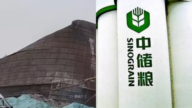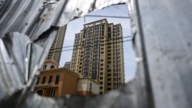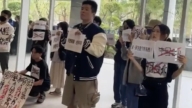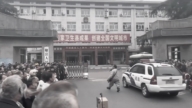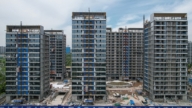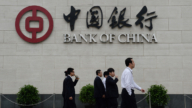【新唐人2011年11月29日訊】北京市政府為實現2011年居民收入增長7%的既定目標,授意轄區內國有企業提前發放年終獎,虧損企業也不例外。這種做法被公眾譏諷為“掩耳盜鈴”、自欺欺人。有評論指出,當局擔心民眾對低收入不滿、害怕年底出現大的社會問題,因此強制提前發放年終獎。
大陸《經濟觀察報》消息,北京一國有企業高層人士透露,北京市政府要求所有市屬國有企業和區縣國有企業,都要提前發放2011年的年終獎,並要求在11月底完成。因為時間緊迫,各企業每星期都要將進展報告給國資委。
這一消息也得到了其他媒體和企業的證實。而根據《第一財經日報》的報導,北京市政府還規定:即使是在今年業績已經出現虧損的企業,同樣要提前發放年終獎,獎金額度按照上一年度的平均工資進行計算。
那麼,到底是甚麼原因使北京市政府下達這樣的命令,直接干預企業年終獎的發放呢?
原來,早在今年年初,北京市政府就宣佈,計劃2011年北京市城鎮居民人均可支配收入,扣除物價上漲因素後實際增長要達到7%。但實際完成情況並不理想,經初步核算後目前只有5.6%。於是北京市政府想出一招,要求國企把正常應該是在明年(2012年)年初發放的年終獎提前發放,來充當今年的居民收入,“能拉多少算多少。”
台灣中華經濟研究院研究員吳惠林教授:“人民的錢也不是從政府那裏來的,譬如說,你去做工作,那就是廠商給你的(錢),那廠商為甚麼要提前發放?為甚麼要發放多少比例,增加多少呢?那個不是政府所能夠管控的。”
吳惠林教授分析指出,當局這樣做,很可能是擔心民眾對政府的不滿。
吳惠林教授:“這個可能表示,現在中國人民一些不滿,個人所得偏低,然後在過年啊,可能造成一些問題。所以中共政府就用這個強制的手段,讓人民這個不滿暫時緩一緩。”
《華西都市報》談到,本來明年發的年終獎,都提前到今年了,而國企年終獎又極為誘人,這一下子平均到全民頭上,人均收入當然被“拉高”。但讓人不解的是,官員為何要如此掩耳盜鈴?如果鐵了心要注水,要面子又有何用?直接宣佈目標完成就行了,反正公眾也不可能掌握相關數據,即使有質疑,闢個“謠”不就行了? !
《青年時報》發表“五嶽散人”的文章指出,“這是一條即將被闢謠的消息”,因為如果不闢謠,就等於是告知大眾,當局在主動造假數據。雖然大家全知道造假這回事,但畢竟這麼明顯的真憑實據還不多。
北京市的相關國有企業也被這一規定深深困擾,某地產公司的財務人員談到,年終獎都是與全年的績效考核掛鉤的,而現在才11月,績效考核還沒出來,怎麼核算年終獎?她表示,政府對年終獎的稅收有優惠,但國稅局規定,一年之內,這種優惠只能有一次。而今年年初已經發放過一次年終獎,如果這次的年終獎和工資一起納稅,職工需要多繳好多錢。
實際上,被要求力保7%這個人均收入增長指標的還不只是國有企業。這個月初,北京市政府為此專門召開了一個“增收入、降價格”的專題會,會上,民政局、發改委、商委、國資委、財政局等各部門都被分配了具體任務。
新唐人記者陳漢、李謙、蕭宇採訪報導。
Beijing SOEs Required to Release Year-End Bonus in Nov.
In order to achieve the fixed goal of a 7% growth in income,
the Beijing authorities of the Chinese Communist Party (CCP)
ordered local SOEs to pay in advance the year-end bonus,
even with no exception of SOEs being in the red.
The action was satirized by the public as self deception.
Comments say that the CCP authorities are worried civilians’
discontent with low income would trigger an outbreak of
big social unrest at the end of the year, so forcing
the SOEs to release year-end bonus’s ahead of
the usual time.
The Economic Observer reported that an executive of a
state-owned enterprise(SOE) in Beijing, revealed that
the Beijing authorities required all SOEs in local cities,
districts and counties to release in advance
the year-end bonus of 2011,
no later than late this November.
Due to the deadlines imposed the SOEs have to hand in their
progress reports every week to State-Owned Assets Supervision and Administration Commission (SASAC).
The news was confirmed by other media outlets and
enterprises. According to the First Financial Daily reports,
the Beijing authorities also state that,
even those loss-making SOEs have no exception.
The amount of bonus equals to last year’s average wage.
What is the reasoning behind the Beijing authorities,
issuing such an order intervening directly in the SOEs’ year-end bonus releasing?
Early this year, the Beijing authorities announced that
Beijing urban residents’ disposable income was expected to reach 7%, adjusted for inflation.
However, the actual accomplishment is not ideal.
The initial estimates showed that the growth of income only achieved 5.6%.
So the Beijing authorities thought of a way, requiring SOEs to
release in advance the year-end bonus which will have to be paid at the beginning of 2012.
Thus, the year-end bonus is counted as this year’s income,
saying, “to cover as much as we could."
Prof. Wu Hui-lin (Research fellow, Chung-Hua Institution
for Economic Research, Taiwan ) says:
“Civilians’ money didn’t come from the government.
For example, you’re working for a manufacturer that gives
you payment, but why does it pay you in advance?
And how much money does the enterprise want to release?
That should’ve been uncontrolled by the government. “
Prof. Wu analyzed that the reason behind this, is the CCP
authorities’ are worried about public discontent with it.
Prof. Wu Hui-lin: “This is probably an indication of the extent
to Chinese people’s discontent, such as quite low personal income.
As the New Year approaches, it might provoke some
potential social unrests.
So the CCP authorities use such a forcible means to defer
the discontent for the time being. “
An article in Huaxi Metropolis Daily said that
the amount of year-end bonus is quite appealing plus the advanced release,
that will certainly lift this year’s per capita income.
But the puzzle is why the authorities plug their ears
while stealing a bell in such a way?
As having determined to fabricate, they may directly
announce that the target has been successfully achieved.
Anyway, the public could not obtain the relevant data,
and even if they have doubts,
the authorities could refute the rumor Leaving the question,
why didn’t they?!
An article published in the Youth Times by Wuyue Sanren,
points out that “This is a rumor to be refuted.”
Because if the news is not denied, that would tell the public
that the authorities are actively making fraud data.
Although everyone knows the fraud, there are not so many
obvious and solid evidences to confirm them.
Beijing-based SOEs are deeply troubled by this official order.
A financial officer at a real estate company says that,
the year-end bonus’s are calculated on the basis of the year-round performance appraisal.
But now the appraisal result cannot come out in November,
how do we calculate the amount of year-end bonus?
The financial officer reveals that there are preferential taxes
treatments on the year-end bonus.
But the Internal Revenue Service sets that such a
preferential tax treatment is only given once a year.
Early this year, a year-end bonus (2010) was released,
so if the year-end bonus (2011) is paid right now,
together with this month’s salary, the employees will have to
pay much more taxes.
In fact, SOEs are not the only category that are ranked
in the list of securing a 7% growth in per capita income.
Early this month, the Beijing authorities held a specific
meeting of “increasing revenue, lowering prices".
Beijing Municipal Bureau of Civil Affairs, Beijing municipal
Development and Reform Commission,
Beijing Municipal Business Committee, Beijing SASAC,
Finance Bureau of Beijing and other official departments, have all been assigned specific tasks.
NTD reporters Chen Han, Li Qian and Xiao Yu


